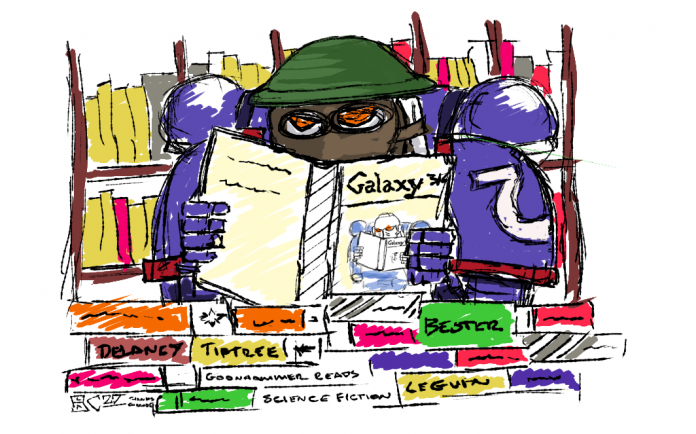Summer 2024 marks the 110th anniversary of the cataclysmic events that led to World War I. Despite being one of the most pivotal events of the 20th century, WWI has not achieved nearly as much representation on the tabletop as its sequel, and we at Goonhammer hope to shine a little light on this fascinating period of history.
Therefore, Goonhammer is pleased to present our Guns of August summer event. Every Monday, from June to August, will see a new article on wargaming the Great War. Expect painting guides, model reviews, interviews, ruleset spotlights, and more!
Perhaps more than any other conflict, what we think we know about the First World War – the trenches, the mud, the Black Adders, the Storms of Steel – is locked into the public imagination. This isn’t just a very Anglo-American view of the war, but a restrictive and unclear one. The First World War was fought for many reasons (though yeah, Imperialism is about 90% of them), in many places, in many ways. We’ve brought together the Historicals team to talk about where you can find different varied histories, opening up the view of the conflict into different perspectives, new wargaming opportunities and a richer understanding of the First World War.
The Overall War
The First World War – John Keegan.
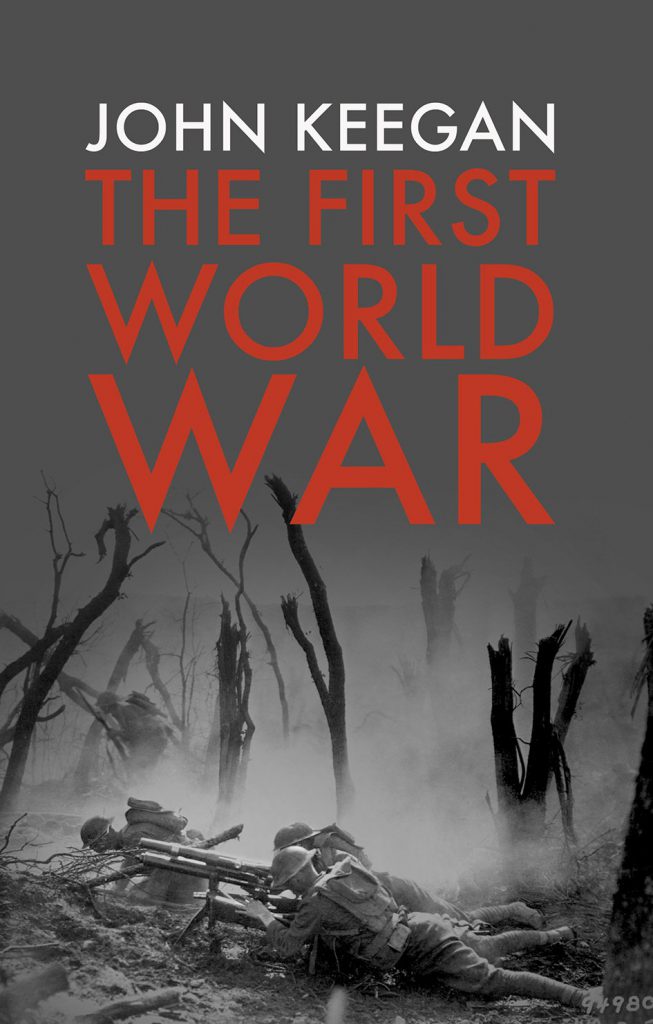
This is my favorite one volume history of the war. It’s incredibly readable, and it spans the breadth of the conflict. It doesn’t lean too much into any one theory of what started the war, but I appreciate that it doesn’t just lean on just “imperialism” as self evident explanation. I’m in the camp that the real cause of the war was German unification and unchecked antagonism (especially in the naval arena) was the primary driver of the conflict. It also provides important details on the African and Balkan theaters. Recommended by: Enzo
The World Crisis – Winston Churchill.
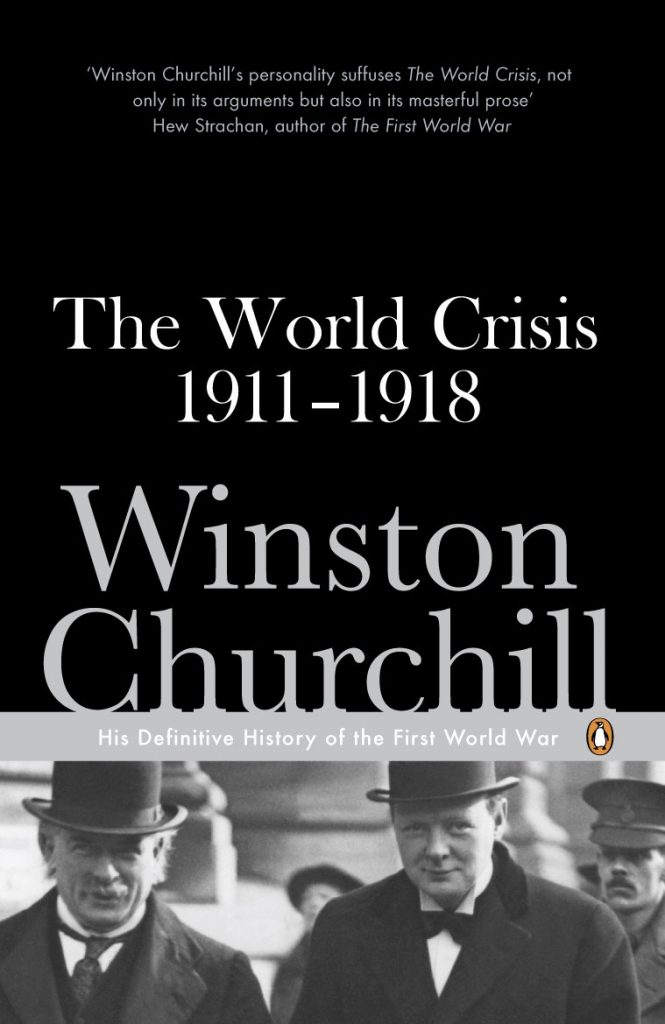
A semi-autobiographical story of the war by a political actor who offered a lot of opportunities to Germany for an off-ramp, crafted a Royal Navy better fit to win a naval war that was never truly fought, and had an inspired but critically flawed and later doomed plan to end the war rapidly rather than more the attritional war on the Western Front. Churchill’s prose in his various works of history later earned him a Nobel Prize for literature, so you’re diving into a classic text. At over ¾ of a million words, it is not a short read. Does it make excuses for the failures of the Dardanelles campaign? Yes. They’re worth reading on their own merit, and as part of a study of crisis and failure. Recommended by: Enzo
Lenoon editor’s note: Surprisingly, I’d recommend this one too, but I can’t recommend Churchill without also asking, “Was he a self-aggrandizing unreliable narrator, a racist and was responsible for some truly heinous shit?” Yep, most assuredly. For a window into Imperial Britain and its twilight actions, he’s still a recommended read.
Ring of Steel – Alexander Watson
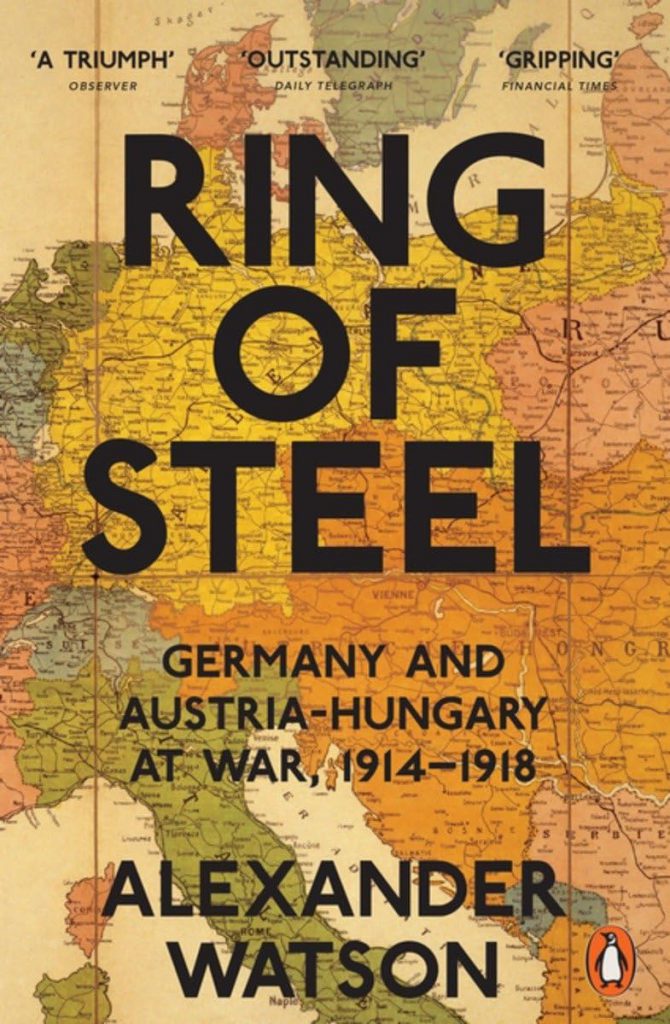
Ring of Steel focuses in on Germany and Austria-Hungary, taking a deep and exhaustive look at both nations and their alliance from the build-up to war to the dissolution of empire at its end. When between them Germany and Austria-Hungary produced the most men, the longest fronts, the overwhelming majority of material support for the triple alliance forces, it’s probably long overdue that you the reader had a better understanding of how, why, when and where they fought. I found it fascinating as it took apart many of the myths around aggression, the blank cheque and prussian militarism to expose a war effort motivated by communities, identities and competing concepts of nationhood. It’s not a book about every front, but for a better understanding of the war, its causes, how it was fought on the home, western, eastern and african fronts by two of the nations at the heart of the conflict, this is a must read. Recommended by: Lenoon
Origins of the War
“One day the great European War will come out of some damned foolish thing in the Balkans.” – Otto von Bismarck
The Origins of War and the Preservation of Peace- Donald Kagan.
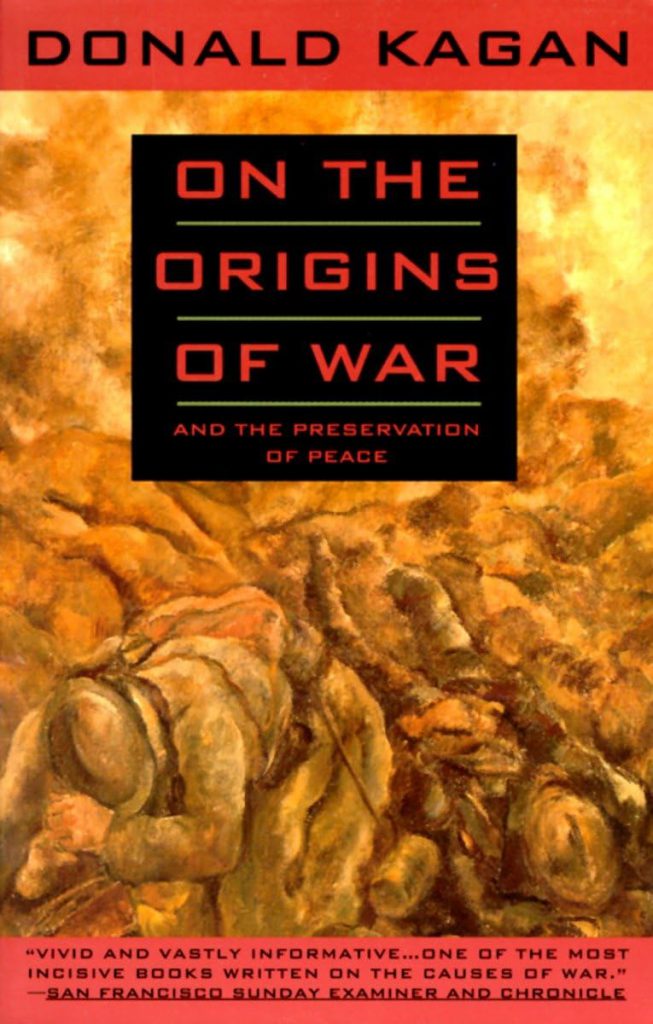
More writing that falls in the ‘blame Germany crowd’, and that’s why you should read it. This text is not a purely history book but an international relations case study written by a preeminent classicist and historian. World War I makes up only a few of the case studies, alongside the Peloponnesian War, the Second Punic War, World War II, and the Cuban Missile Crisis. Kagan lays out the difficult balance of power in Europe following the unification of Germany, and while other powers are to blame for their counter posturing, he argues that German aggression—especially under Kaiser Wilhelm II—was both destabilizing and untenable. But Kagan doesn’t simply blame the last Kaiser and his warhawk advisors. If Bismarck’s line about the Balkans is prescient, it’s also ironic. Bismarck created a delicate spider web of European power politics that he alone could manage. With his death, the system crashed out of control, dragging Europe with it. Recommended by: Enzo
Dreadnought – Robert K. Massie.
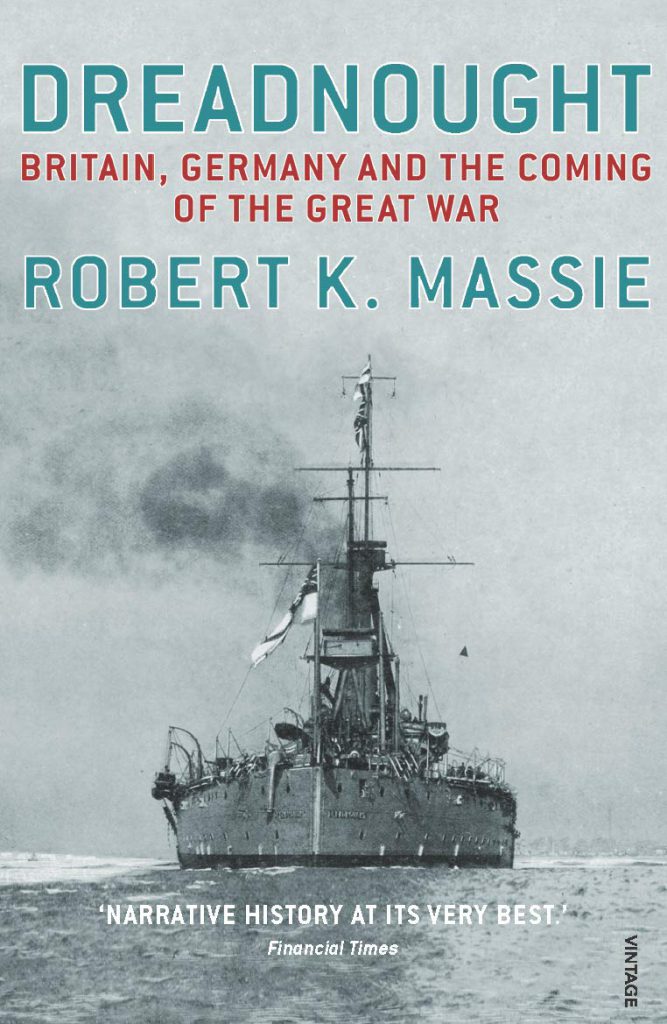
I know the title makes this sound like it’s going to be about boats – to be honest, that’s why I bought it in the first place – and it is about boats both directly and indirectly, but it’s also so much more than that. What Dreadnought actually is, is a story about Anglo-German relations for more or less the entirety of the German Empire’s existence, from the 1870s to the very eve of the Great War. The middle third is almost entirely devoted to Jackie Fisher and his re-making of the Royal Navy, but most of the book is about diplomacy, royalty, and international relations during what ended up being a pivotal few decades in history. The fact that those relations happened to involve a massive naval arms race is key to, but only part of, the story this book tells. Mostly it’s about every German statesman after Bismarck deciding to be openly antagonistic at the worst possible times. Recommended by: Greg and Ilor
The Sleepwalkers: How Europe Went to War in 1914 – Christopher Clark
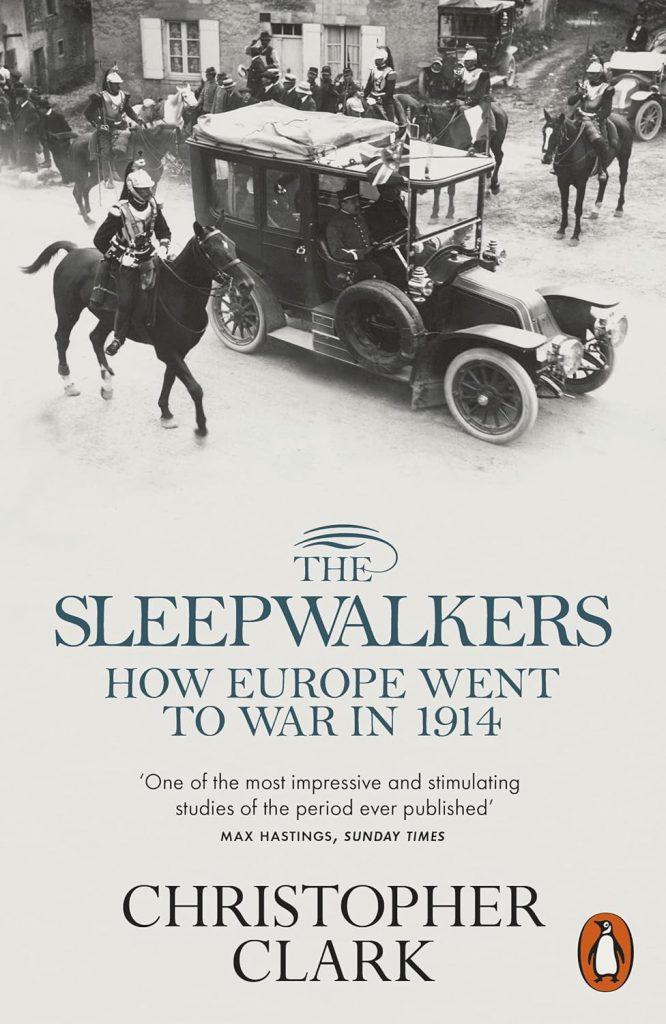
Clark’s monumental study of the steps to war kicked off a new phase in the historiography of the road that led to the trenches, and not without controversy. It’s an in-depth look at the Balkans, the ferment of nationalism and competing imperial powers and a step by step, pan-european account of the slide into war. Clark posits that responsibility for the war can’t simply be laid at the door of the Reichstag and that – by design, by incompetence, on accident, a europe-wide process of Imperial brinkmanship and clashing national and individual goals led inexorably, but not irreversibly, to war. Responsibility lies everywhere in a series of decisions ranging from the sensible if aggressive to the downright maddening. If you want to look at some of the most up to date research, Clark is where it’s at. Recommended by: Lenoon
Western Front
Poilu: The WW1 Notebooks of Corporal Louis Barthas, Barrelmaker
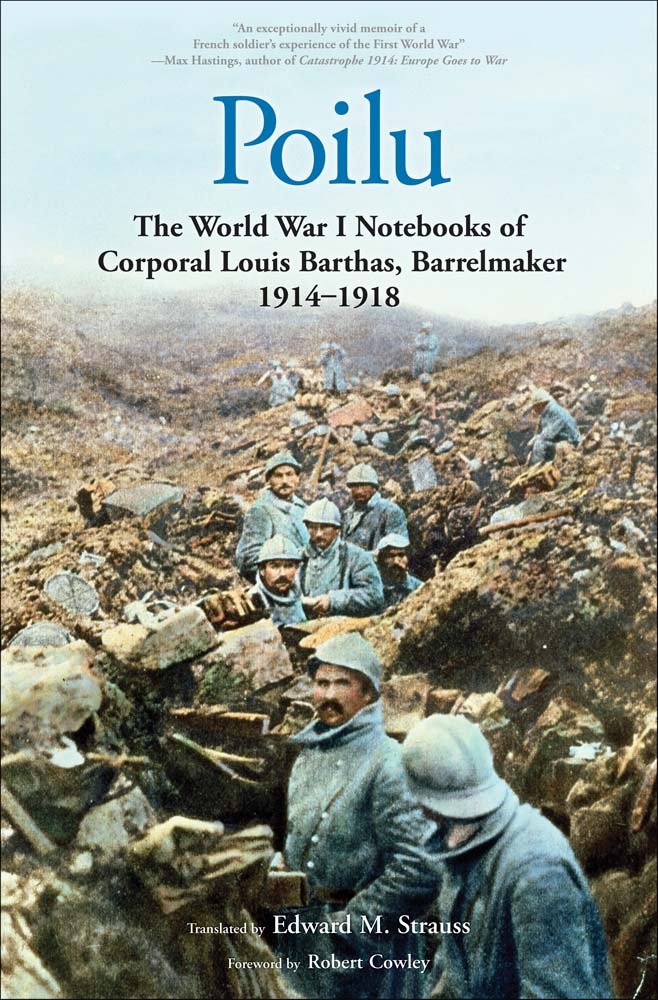
There’s few better ways of understanding the mud, blood and horror of the trenches than reading a first hand account. Enter Louis Barthas, Barrellmaker, Socialist, Grognard and Pacifist, conscripted into the French army and sent head first into hell on earth. Barthas hated the war and spares absolutely no detail or criticism. There’s no stiff upper lip and pretense that everyone was having a good time here. Barthas is bored, he’s scared, he’s angry (usually at officers) and he knows that the Germans and Austrians on the other side of the line are exactly the same. He’s also very, very funny, and his sarcasm and naked contempt for warmongering politicians and jingoist bastards shines through every single incredibly readable page. Recommended by: Lenoon
The Price of Glory – Alistair Horne
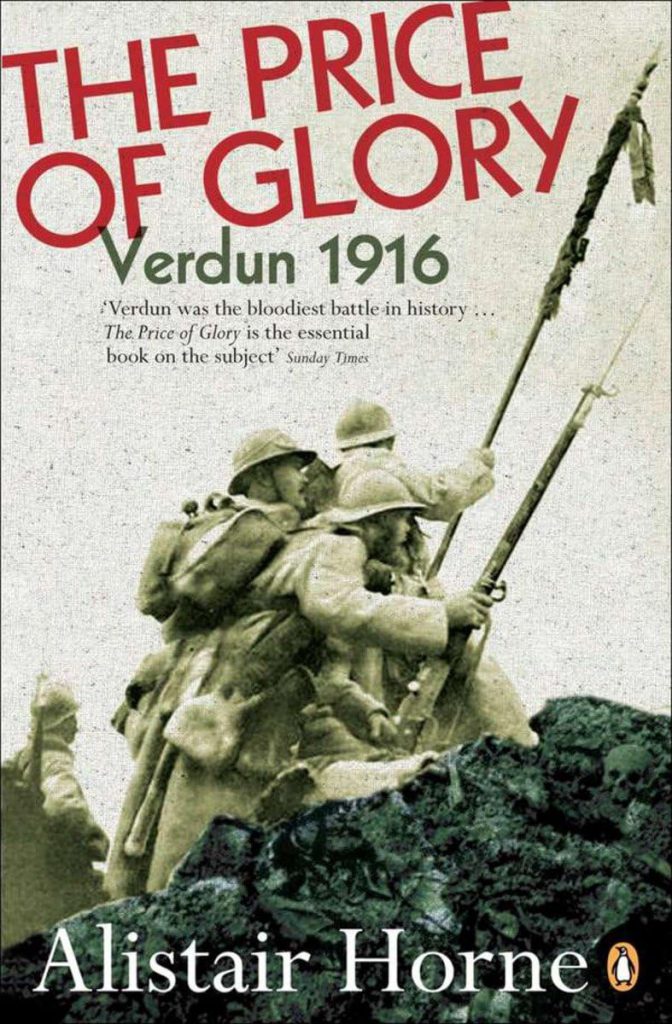
Probably still the definitive layperson’s book on the battle of Verdun. If you want to read hundreds of pages about Frenchmen and Germans pounding each other into stew meat with artillery, this is about as good as it gets. It never gets boring and rarely gets lurid, and there’s enough first-hand accounts to keep things grounded while still showing the wider picture and context. Recommended by: Greg
Storm of Steel – Ernst Junger
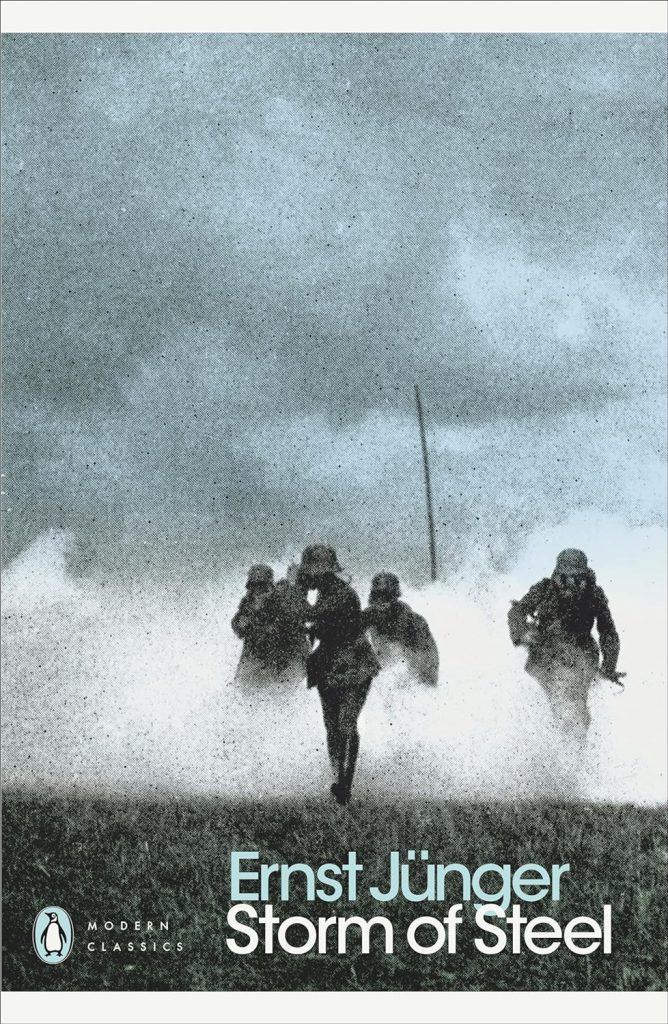
I actually struggled with “recommending” this one. I think it’s worth reading, as it’s a fascinating first-hand account of being stuck in just about the most miserable era of all human existence, but that’s colored somewhat by the fact that the author seems to think that being in the war ruled, that war in general kicks ass. Junger was a weird dude with weird ideas, and reading him comes with a lot of baggage, but take solace in the fact that at least he didn’t become a Nazi later. Recommended by: Greg
Around the World
The White War: Life and Death on the Italian Front – Mark Thompson
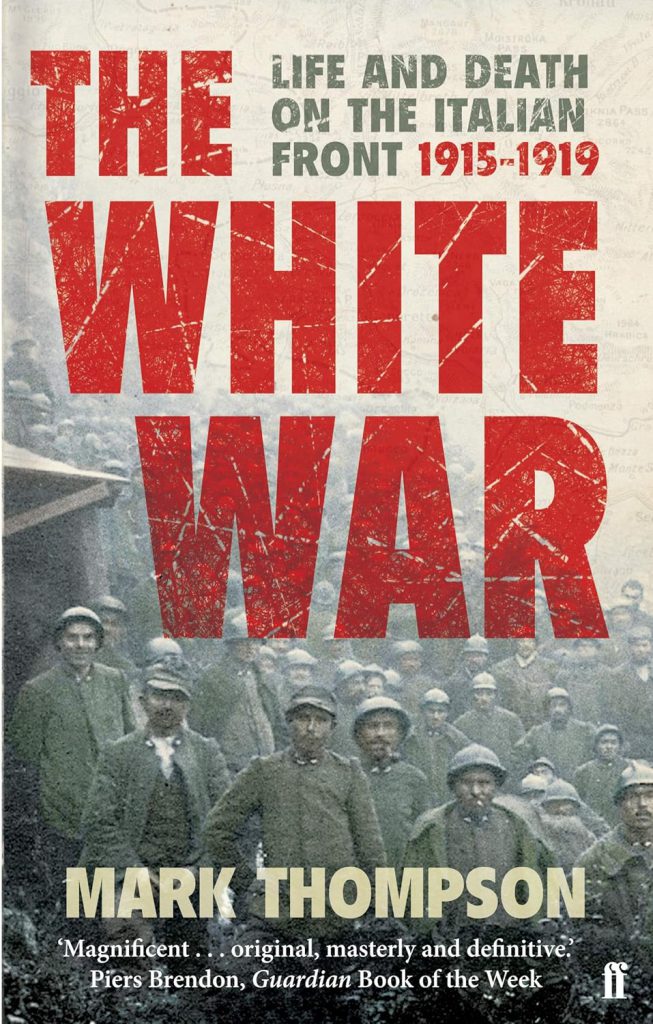
The conflict between Austria and Italy hasn’t been well served with anglophone histories, but the White War goes a long way to correct this with an accessible and gripping history of the Italian front and it’s consequences for the 20th century. We’re used to the story of the trenches in Belgium and France, but Thompson reveals battles even more futile, commanders driven by fiercer revanchism and conditions so terrible that defenders cried out to attackers to stop, because they were all going to die. It all comes together to make for a compelling and empathetic read that will open up a whole new front in your knowledge of the war. Recommended by: Lenoon
Gallipoli by Peter Hart
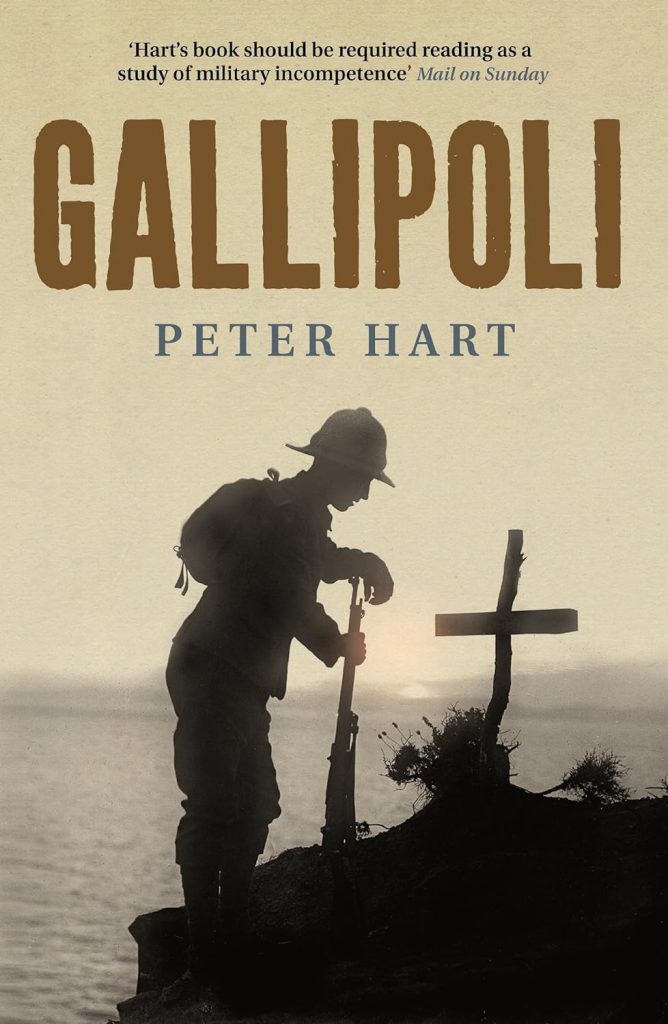
Peter Hart focuses heavily on oral history, unsurprising since he was the long-time oral historian of the Imperial War Museum. Rather than dry accounts of facts and figures, his books are absolutely packed with first-hand accounts from the men on the ground. The end result is an absolutely gripping read from start to finish. Furthermore, unlike many other books on the subject, Gallipoli doesn’t neglect the perspective of the Ottoman side (who suffered mightily in the campaign as well). Recommended by: Class Warcraft
Lawrence in Arabia by Scott Anderson
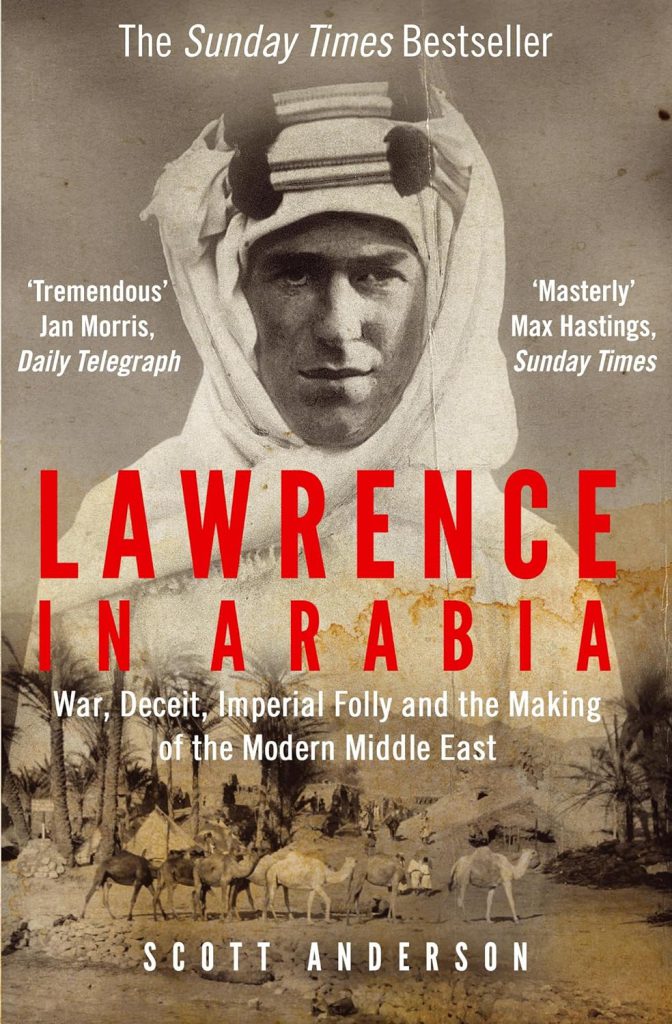
Ostensibly a biography of T.E. Lawrence, this book provides a fantastic close up look at the war in the Hejaz, as well as a dive into the politicking of the period between the British, the French, and the Americans that would end up driving conflict in the Middle East for much of the modern era. Recommended by: Ilor and Lenoon
(You should go read Seven Pillars of Wisdom, too.)
Tip and Run: The Untold Tragedy of the First World War in Africa – Edward Paice
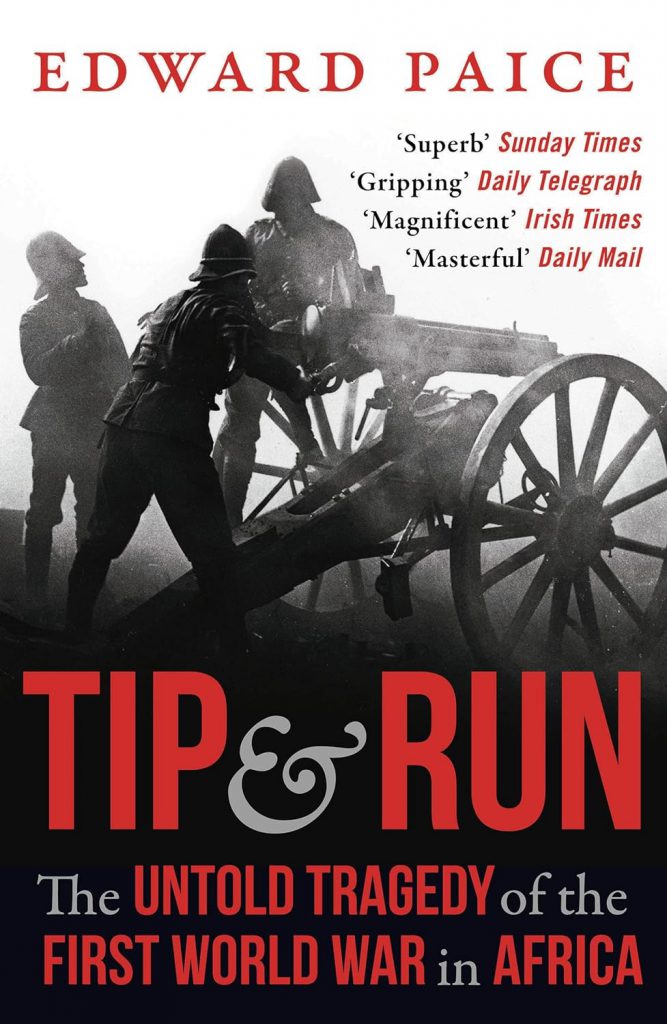
As a clash between several globe-spanning empires, the First World War was nowhere more pointless and invasive than in sub-Saharan Africa where hundreds of thousands of Africans were, by hook or by crook, used by European Militaries. The gambits and campaigns of the African front are almost unbelievable, and played out against a backdrop of colonial cruelty. We know too little about it – Tip and Run goes some way to correcting that. For those interested in the campaigns of the war – like, perhaps, wargamers – Tip and Run provides a phenomenally detailed account of the East African front, from troop movements to grand strategy. I think there’s a fair criticism of Tip and Run that it occasionally moves heaven and earth to perform Anglocentric empire-apologia, and another that it strays too far into the minutiae of European campaigns while failing to look into the African experience of the war. As such, it’s far from a perfect book, but, so far, it’s the best I’ve read on this forgotten and particularly tragic front. Recommended by: Lenoon
Castles of Steel – Robert Massie
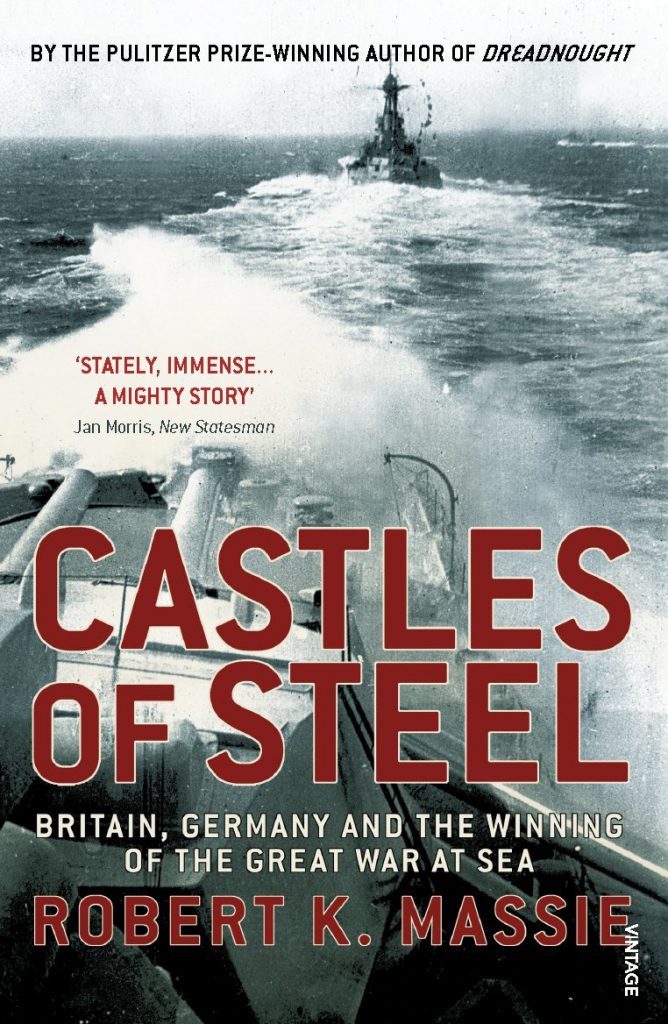
Do you like big boats that fire enormous shells at each other? Then read Castles of Steel and get the definitive history of the war at sea between Germany & Britain in the Great War. This book largely focuses on the surface fleets, rather than the submarine campaign, but does a great job linking everything together. Recommended by: Class Warcraft
Though we could stay here recommending books on the First World War for days (how have we not even started the poetry yet?), 13 books ranging from the monumental to the accessible is probably a good start! Watch out for more First World War content as our Summer Offensive kicks off over the next few weeks. If you have any recommends to send our way, please get in touch – either leave a comment below or via email to contact@goonhammer.com.
